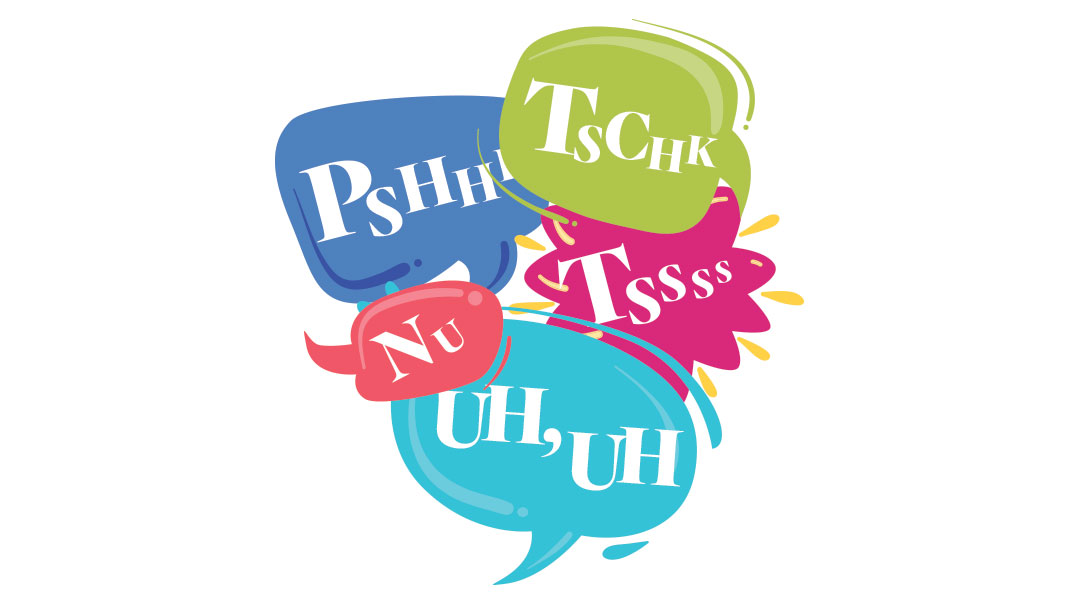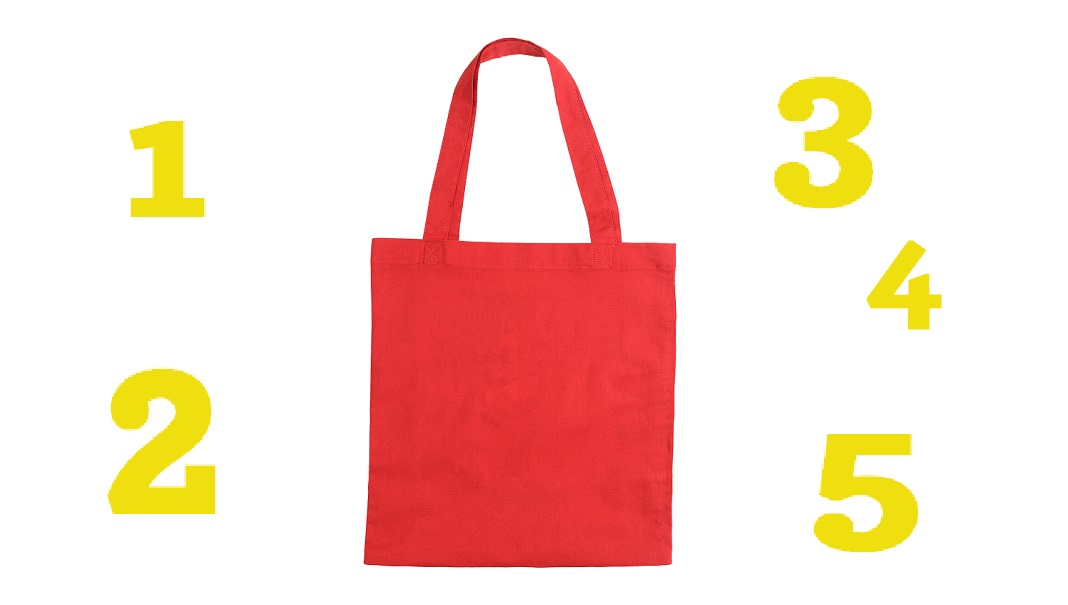Top 5 Jewish Noises

Here are my top five Jewish sounds that always get the point across

Huh? There are so many different ways for people to express themselves, and Jews are certainly no different. We have our geshmak words that no one else has — mechutanim, bedieved, shayach, goires, and many others. But sometimes all you need is a noise. A krechtz is worth a thousand sorry’s. But before I share my list, I need to make an important disclaimer. I have excluded the sound “oy.” I know, oy. Some may say it’s the ultimate Jewish sound. Maybe so. But it’s also like the bagels and lox of Jewish sounds — the sound Jewish people make because they don’t know any others. So I’m sorry to all of the “oy vey” enthusiasts out there, but here we’re focusing on sounds a bit more profound on the spectrum of Jewish noises. Just as liking the song “Racheim” doesn’t make you a real Shwekey fan, “oy vey” doesn’t quite bring you into the club. Here are my top five Jewish sounds that always get the point across.
Pshhh
I’m no historian, but I don’t think there has been a sincere “pshhh” since the early 1980s. Certainly, there was a time that the “pshhh” sound connoted actual accomplishment and honor, but it’s been decades since then. Now “pshhh” is reserved for two primary circumstances: (1) When the class clown in eighth grade gets an aliyah, you can count on the entire graduating class giving a “pshhh.” (2) It was announced you’re getting honored at a dinner that clearly was turned down by a few other people first. Pshhh, saw you’re getting honored by the shtibel — you gonna forget about the little people next time we have a breakaway Friday davening together? It’s a playful way of reminding someone who just was given a morsel of kavod not to take themselves too seriously. It’s a shame “pshhh” is only understood in the Jewish community. Imagine being able to “pshhh” on conference calls when the company reports sales figures. Here’s the general rule of thumb: They’re not pshhhing with you — they are pshhhing at you.
Tsssssss
“I just heard an amazing vort from Rebbe.” You slowly begin backing away. You’re sure the vort is amazing, but you’re also absolutely certain that it will be absolutely butchered when it’s told to you. “So, in the parshah, the pasuk — wait, do you have a Chumash? It’s better inside.” You playfully pat your pockets. No Chumash, as your eyes slowly scan for exits. But it’s too late. You know you’re going to have to sit through this lukewarm kli sheini recitation of a vort that probably requires about two pages of maareh mekomos to even properly set up. But here we are. Don’t panic. When there’s a lull in the passionate, though likely completely incorrect recitation of the vort, there is a catch-all reaction that can bail you out without having to resort to a follow-up clarification question: Tsssss. Like a balloon slowly deflating, “tssss” is the sound you make when the tension dissipates while waiting for a long vort to end that you, and likely the speaker, did not understand. If you really want to make sure your faux enthusiasm registers, make sure the “tsss” is accompanied by a gentle head bob from side to side and concludes with the sounds of a small bomb going off inside your mouth. Pchhhhh. Next time you’re in this situation, try to cut them off earlier. When they ask you if you have a Chumash, point to your heart, follow with a tssss, head bob, pchhhh, and run for the door.
Nu
In the corners of nearly any shul a conversation unfolds that would be incomprehensible to an outsider, but quite unremarkable to an insider.
“Nu?”
“Nu, nu.”
“Nu!”
“Nu, nu, nu!”
“Nu.”
Maybe they’re arguing about who should get a kibbud, or about politics, or talking in learning. It doesn’t really matter what they’re discussing — what’s impressive is that a “nu” can essentially comprise an entire conversation. Its meaning changes depending on the tone, so you have to listen carefully. This is the “Who’s on First” of the Jewish world. Add a question mark at the end, an exclamation point, a string of nu’s, and for each permutation the meaning changes. But most readers likely already know this. Or in other words, “nu, nu.”
Tschk
The Gemara uses two nearly identical phrases to express dissent. Sometimes the phrase used is “Lo amar midi,” but other times, the Gemara uses a slightly different term, “Lo amar v’leho midi.” What’s the difference between the two? My esteemed and uber-shtoltzy chavrusa, Rabbi Binyamin Silver, JD, once told me that the former phrase is the Gemara saying, “What was said is not correct.” In the latter, however, the Gemara is saying, “You didn’t even say nothing.” I’ve loved the distinction ever since. Sometimes you don’t want to argue with someone — you want to communicate that whatever has just been said doesn’t even have enough substance to argue with. You didn’t even say nothing. Thankfully, when we want to communicate such absolute dissent, we don’t need to rely on Talmudic terminology. We have a sound: Tschk. Move your tongue towards your front teeth and the roof of your mouth and snap it downwards. Hear that click sound? That means “you’re so wrong it doesn’t even merit an explanation.” If anyone ever tongue clicks at you, just be thankful. They’re trying to stop you before you say something truly awful. If you don’t stop speaking after the first “tschk,” you’re bound to wind up in worse territory: Feh.
uh, UH
Everyone needs motivation. Onlookers and supporters encourage marathon runners with their cheers. A child gets excited with thoughtful words of affirmation: “Almost there — you did it!” The affirmation in the beis medrash is not a phrase, it’s a sound: “uh, UH.” The emphasis and tone slowly rises with each successive “uh.” You’re saying good — “uh, UH” — say noch besser. But this noise has begun to travel outside of the confines of the beis medrash. I once went to a little league game, or as it is charmingly called in the yeshivah world, “Yiddle League.” When the home team gets a big hit, you can actually hear all the Tattes in the stands audibly grunt together, “uh UH” as the child rounds the bases. And when the child finally crosses home plate, the collective “uh Uh” crescendos into a passionate “oo-aah.” When communities invite me to speak, my signature motivational speech is about 40 minutes of impassioned “uh UHs” that conclude with a resounding “oo-aah.” Everyone understands it, but no one ever invites me back. Nu, nu.
(Originally featured in Mishpacha, Issue 795)
Oops! We could not locate your form.







